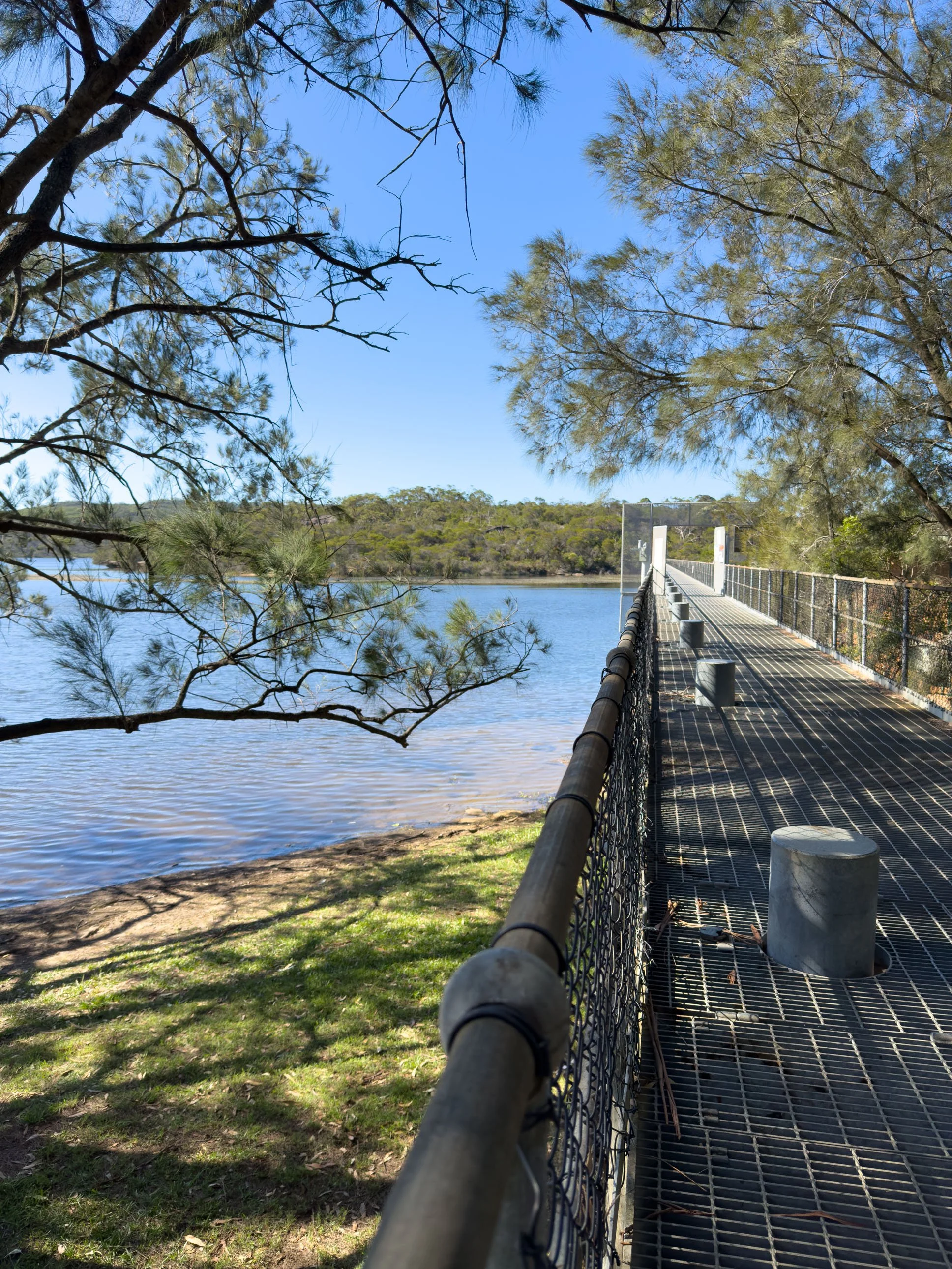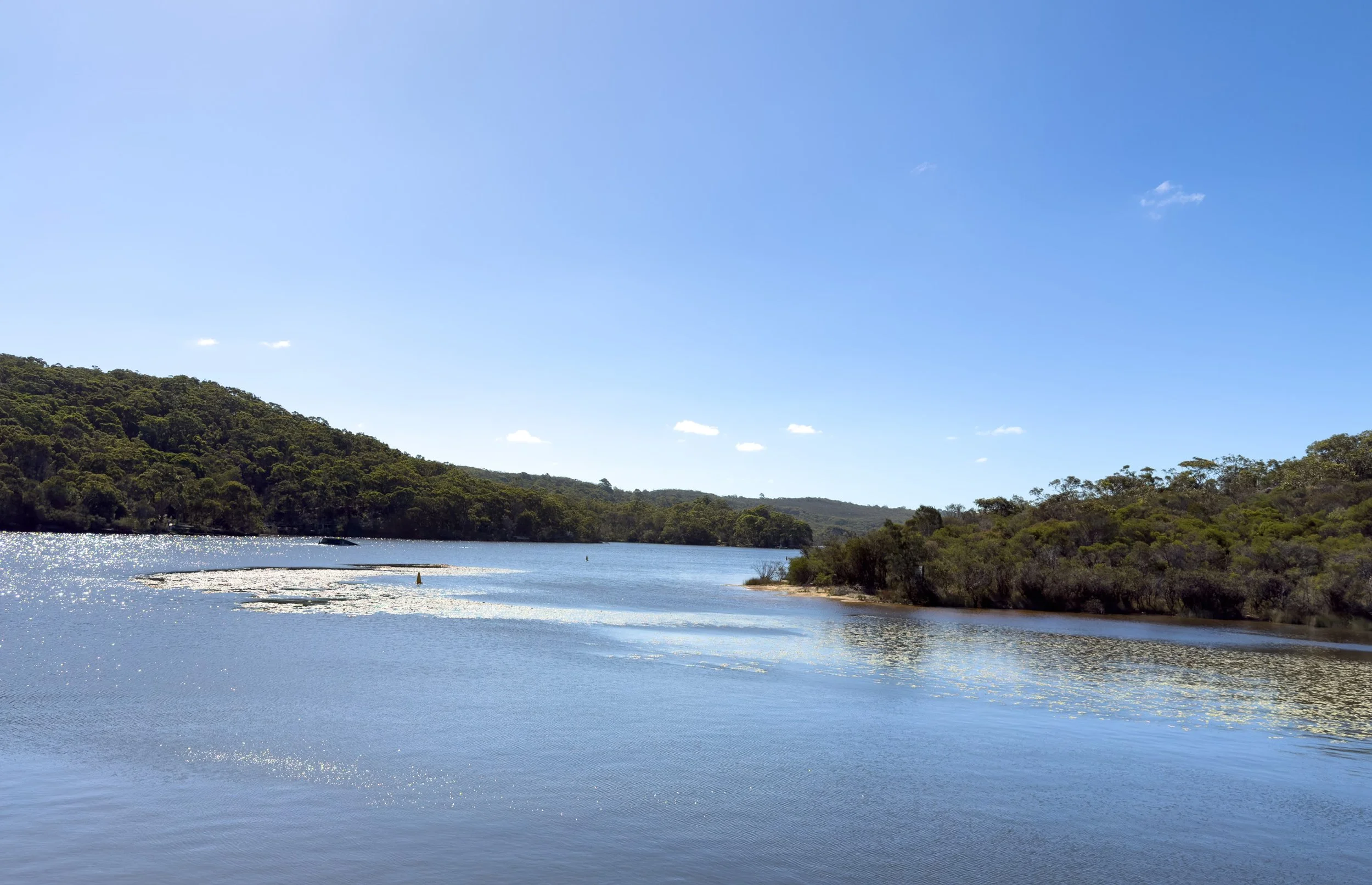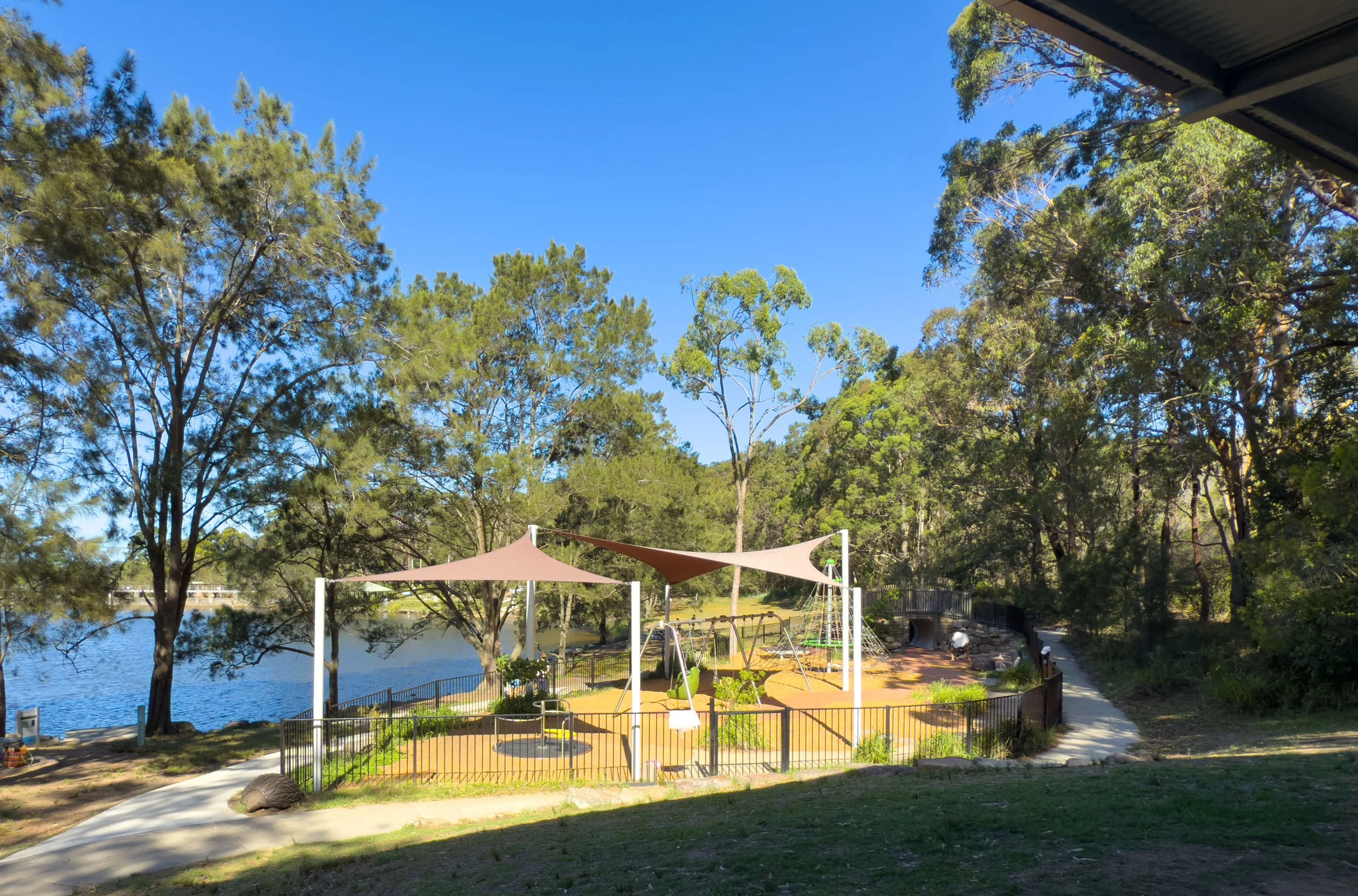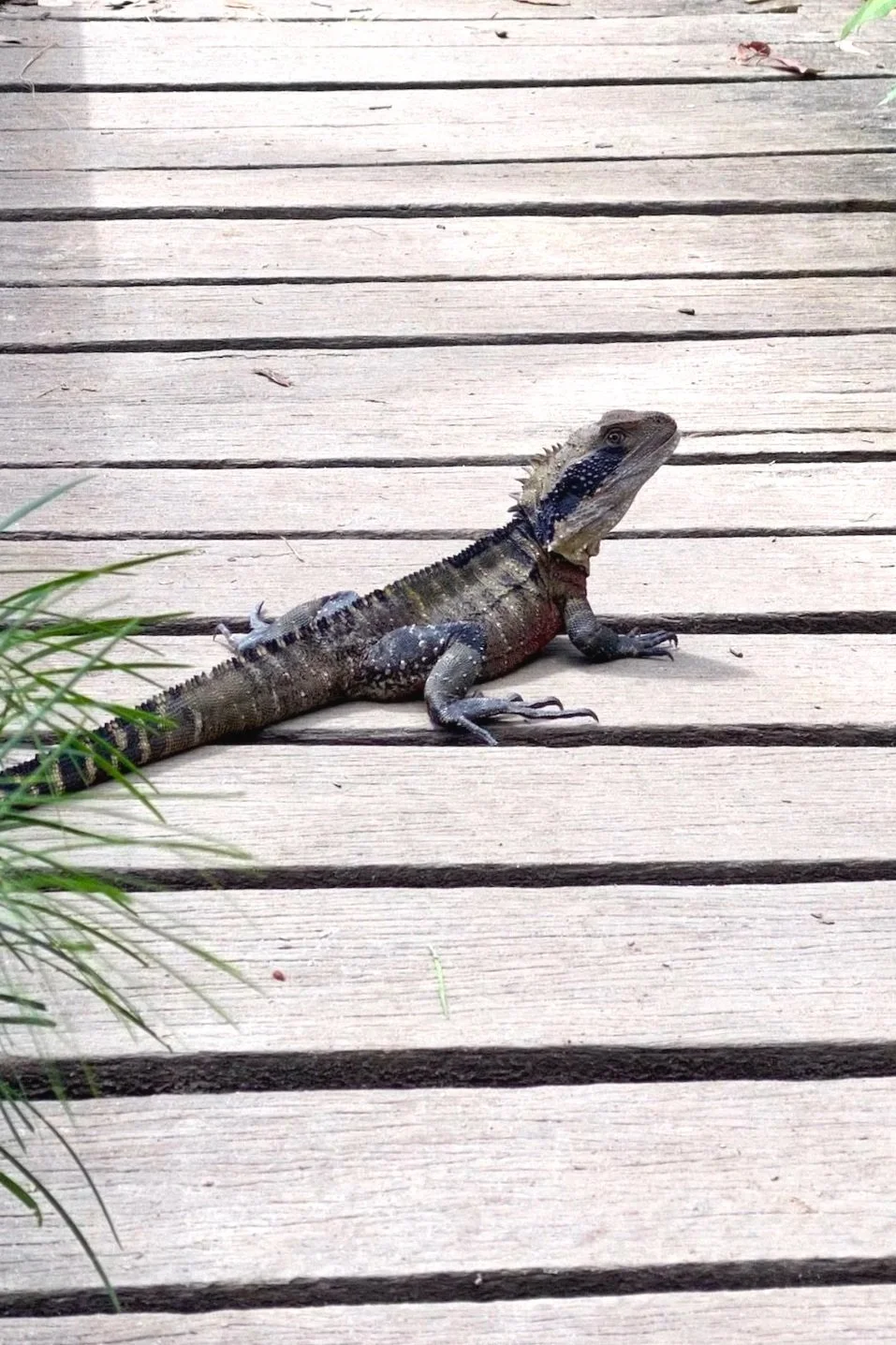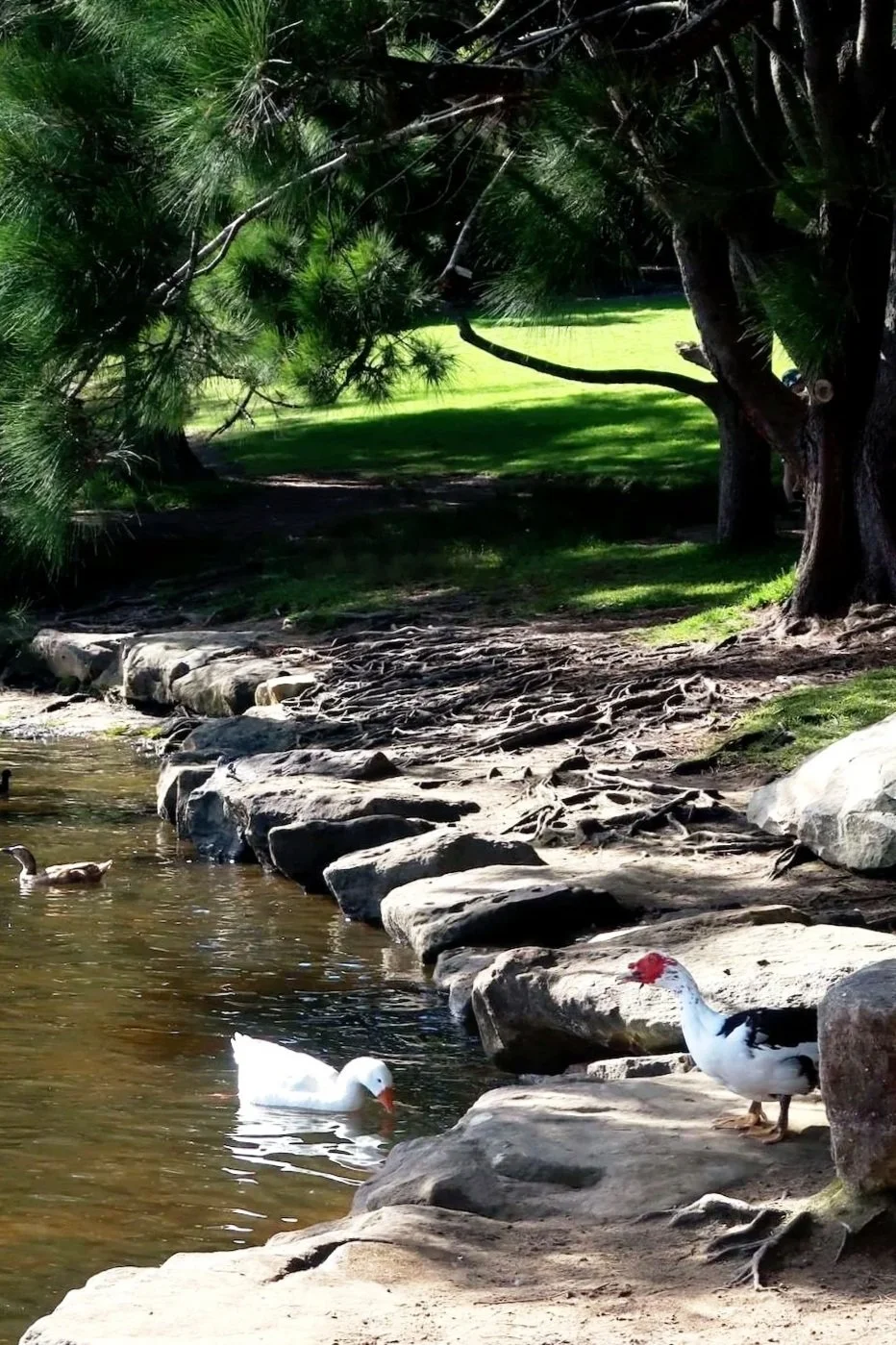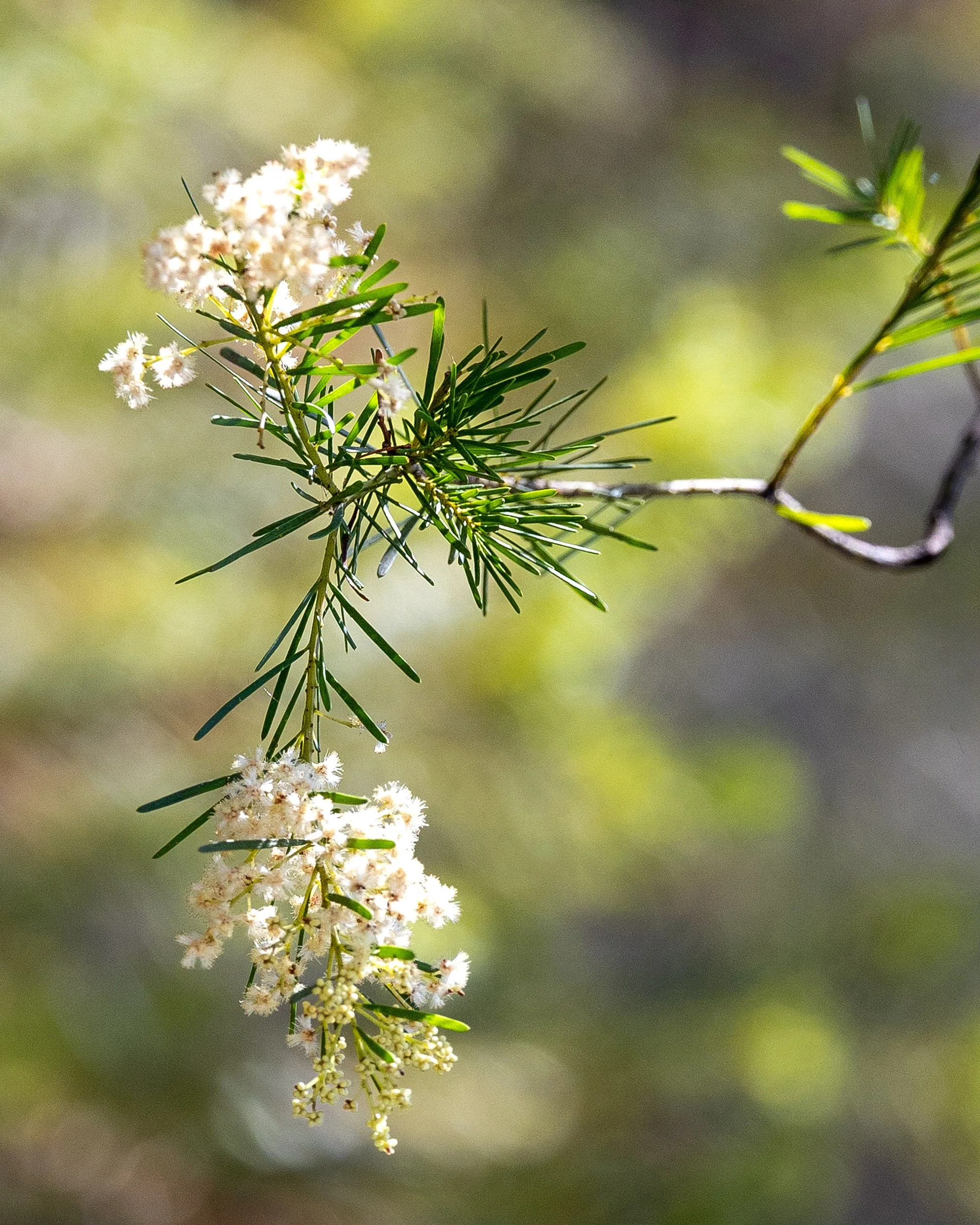Manly Dam Loop
A peaceful bush circuit close to the city
This is one of those Sydney bushwalks that makes you feel like you’re actually out in the bush, rather than right on the edge of suburbia. It has a lot to recommend it including birds, wildflowers and babbling brooks. The only thing missing is coffee, but for the sake of unspoilt natural surroundings, I was happy to wait.
The Manly Dam Trail is a circular walk that begins at the main picnic and recreation area and follows the Park Circuit Track around the reservoir. Despite its suburban setting, the trail feels enclosed and surprisingly peaceful, with long stretches where the only sounds are birds, frogs and cicadas. The circuit can be walked in either direction, depending on how you want to tackle the climbs, and while it’s an easy walk for the most part, there are a few rocky sections where sturdy shoes will help. With playgrounds, swimming areas and picnic spots at the start and end, it also works well for families.
Trail at a glance
A classic bush-and-water loop around Manly Dam
Map key
- 1 Entry and parking
- 2 Dam wall & footbridge
- 3 Creek crossing
- 4 Bantry Reserve & parking
- 5 Accessible boardwalk
- 6 Main picnic and recreation area
WALKING THE TRAIL
Picnic Area & Manly Dam
The walk starts at the main picnic area near the playground and toilets. This is a good place for a last stop before setting off, as facilities are limited once you’re on the trail. From here, head downhill past the signposted swimming area Near the water’s edge, you’ll pass a war memorial on your way to the footbridge that crosses over the dam.
A little background on the dam: Manly Dam was constructed in 1892 to supply water to the local area. The dam wall was raised several times in the early twentieth century, but demand soon outstripped supply and in 1929 the dam was replaced by a pipeline from the metropolitan system. It was briefly brought back into service during the drought years from 1934 to 1942, before being retired for good and transitioning to recreational use.
Looking down, with a touch of vertigo if you’re scared of heights like me, it’s hard to imagine the reservoir ever threatening to overflow. But heavy rain in 1915 came close enough to prompt flood warnings and evacuation plans in surrounding areas.
The Park Circuit
Once you’re on the other side of the dam wall and through the gates, climb the set of sandstone steps to begin the Park Circuit Track. The trail is generally well defined, though a map will help you avoid (or locate) several offshoot options where you might otherwise get lost.
The track is not a difficult one, though there are rocky climbs and gnarled tree roots in places. You may share parts of the trail with mountain bike riders, particularly on higher ground, but it’s walkers and runners for the most part, and if you go early you may find that you have long stretches all to yourself.
The Park Circuit Track passes through open woodland and swampy lagoons, along tiny sandy beaches and past creeks, waterfalls and rock pools. For much of the walk, the path hugs the water, with views shifting constantly as you move around the reservoir. Where it veers into bushland, you’ll find shaded paths and flat rock platforms that give views back over the dam.
Return to Picnic Area
After you’ve rounded the top of the loop and are heading back on the other side of the dam, the track skirts the rear of Wakehurst Golf Course before continuing along the water towards the main swimming and recreation areas.
Further on, between Picnic Areas 2 and 3, you’ll come to a newer boardwalk section. This short stretch is wheelchair and pram friendly and rises gently, with viewing platforms that look out over the dam.
Beyond the boardwalk you’ll find yourself back at the main picnic and parking area near the dam wall — a good spot to stop for a swim, picnic or barbecue before heading off in search of that coffee.
Wildlife and wildflowers
The Manly Dam trail is abuzz with the sounds of local birds. Over 80 species have been sighted here and you can hear many of their competing cries. Several varieties of frogs can be heard too, along with the constant background hum of cicadas in summer. There are geckos and water dragons perched high on rocks, while local possums, swamp wallabies, echidnas and snakes mostly stay hidden in the surrounding bushland. If you’re very lucky, you might spot one of the rarely seen Eastern long-necked turtles that live in the area.
Around the dam and at various points along the circuit you’ll see an array of wildflowers. Colours and varieties change with the seasons. Walking in summer we saw plenty of flannel flowers, golden wattle and Christmas bush. There are over 300 species of native plants recorded along the trail, including 18 different species of native orchids.
DIRECTIONS & ACCESS
By bus
- Buses from the city including the Northern Beaches B-Line stop along nearby Condamine Street.
- From Condamine Street, it’s a short walk to Manly Dam Reserve.
By car
- Enter the parking area off King Street (paid unless you have a local council sticker), or park in surrounding streets.
Note: This is a circuit walk and can be done in either direction.
THINGS TO DO WHILE YOU'RE HERE
Swimming
- Designated swimming areas near the main picnic and recreation area.
On the water
- Kayaking, paddle-boarding and water skiing (bring your own watercraft — no hire spots that I could see).
Picnic & facilities
- Picnic tables and barbecues near the main area (book ahead for large groups).
- Playground and toilets at the main picnic and parking area.
PRACTICAL TIPS
- Some sections are rocky with exposed roots — sturdy shoes are recommended.
- Toilets are at the start/end near the playground (good place for a stop before you set off).
- Accessible option: a short section near the picnic area is wheelchair and pram friendly (boardwalk with viewing platforms).
- After rain, shaded sections can be muddy or slippery.
- You may share parts of the track with mountain bike riders, particularly on higher ground.
Final thoughts
Manly Dam Trail is an easy walk to return to. It’s close, varied and feels more remote than it actually is. If you enjoyed this walk, you’ll probably also like the loop around Narrabeen Lagoon or the Flat Rock Gully Walk, both on the north side. On the south side, the Lime Kiln Bay and Oatley Park Loop is another favourite.
Last updated: January 2026

